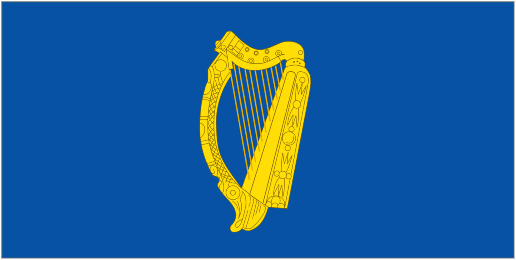
The Celtic Consortium
'O words are lightly spoken,'
Said Pearse to Connolly,
'Maybe a breath of politic words
Has withered our Rose Tree;
Or maybe but a wind that blows
Across the bitter sea.'
'It needs to be but watered,'
James Connolly replied,
'To make the green come out again
And spread on every side,
And shake the blossom from the bud
To be the garden's pride.'
'But where can we draw water,'
Said Pearse to Connolly,
'When all the wells are parched away?
O plain as plain can be
There's nothing but our own red blood
Can make a right Rose Tree.'
The Rose Tree - W.B. Yeats
The Celtic Consortium is an alliance of free states under the guidance of the High King or Queen. Known for it's complicated politics, cultural supremacy and surprising regard for intellect, the Consortium has often bore the brunt of bigger empires but it has lasted on, weathering the storm of time.
The story of the Consortium dates back to a time long forgotten. Back when it wasn't Christianity on the lips of the people but of Druids and Ancient Gods. The Celtic civilization was a confusing one with moments of both progression and backwards ideologies. Regularly practising human sacrifice and committing acts of barbarity upon their enemy, they were considered a savage people but they were very aligned with nature and almost had a supernatural affinity with the wilds.
The Celts faded and the Gaelic civilization rose in it's place, controlling territories such as Ireland, the Isle of Man and parts of Scotland. Not much is known about this time but the Gaels that were recorded by the Roman Empire were reported to be wild people. In fact, Gaelic culture was quite complex and considerably more profound than the Romans suspected. Ireland was split into four provinces - Connacht, Leinster, Munster and Ulster. Over them ruled the High Kings of Ireland. The Gaelic civilization continued, watching the rise and fall of Rome and eventually becoming the recipient of Christian teachings. The Vikings came and went as the Gaels slowly became dominant over areas such as Scotland.
Despite having High Kings, the Gaels weren't exactly known for organising themselves into one, single-minded nation and were often divided by bickering and infighting. It was this that allowed for the easy colonisation of Gaelic-controlled areas by the Empire of Britannia. To the common people, it made no real difference who controlled them as the Gaels were used to living a life of freedom, exempt from rules except from their clans and chieftains. It was the High King of Connacht that was the last to fall under the aggressive expansion of the Britannians. And so, the thoughts of Ireland did brood, upon a measured quietude.
Time slithered onwards and Britannian control became stricter and stricter. No longer did the chieftains control their people but Lords and Earls were installed to tighten their grip. The land was divided amongst these Lords and the common people were forced into paying rent for their own land. The people feared the Britannians but it wasn't long until fear led to anger and anger, very slowly, turned to hatred. The oppressive masters were blind to this gathering fire, however, due to their conquests in Europe and the Middle East.
In the early 1400s this gathering fire spat forth an ember - Aedhan O'Brian. He rode around Ireland, urging the chieftains to gather their people and aid his cause. Although hesitant to serve another, the chieftains begrudgingly agreed and united under the banner of Aedhan. The Britannians were forcefully made aware of this Irish army when, starting from the old province of Connacht, Aedhan and his army began burning every Lord and Count, putting any man who refused to leave to the sword. Having spread their armies all across Europe and the Middle East, they could barely even muster a standing army to oppose Aedhan.
This force made land in Ireland and marched down to meet Aedhan's army at Navan. What followed was the Battle of Navan where Aedhan's army, taking the highground, won a massive victory and successfully routed all Britannian attempts at quelling the rebellion. It was here that Aedhan ascended to the Hill of Tara and was declared the High King of Ireland. After this event, the common people themselves deposed the Lords, causing them to flee back to Britannia. Ireland became free once more but Aedhan grew resentful of his enemy and loathed how they still exerted control over Scotland and Wales. In secret, he conferred with the Scottish Chieftains. It was in these agreements that the early ideas of the Celtic Consortium was born.
A year after the successful liberation of Ireland, a Scottish girl, daughter of one of the Chieftains by the name of Allie took Aedhan's hand in marriage and became the High Queen. The Scottish chieftains pledged their utmost allegiance to Aedhan and in the year of 1437, the Irish King and his army landed in Scotland and joined the growing Scottish force to form a standing army capable of toppling the British. The Welsh, having grown fond of the British, refused to participate in the war and stayed on the sidelines as the united armies marched down into Northern Britain. Fearing the might of this army, the Britannians recalled as much men as they could spare to defend the homeland. The Irish and Scottish army crushed both armies that they had met but Aedhan knew that any other armies they met would be experienced and deadly; not to mention the fact that they were far from home and supply lines could be easily halted. Aedhan, upon taking quite a number of Northern Forts, made the previously unheard-of decision to split his army entirely. Separating his commanders and his army into small, fast-moving detachments, they became practically unstoppable. Given no massive army nor battlefield to face them on, the British froze at the guerrilla tactics and it wasn't long until Britain itself was ablaze. They didn't even need to meet their armies head-on - they simply destroyed the infrastructure around them and the Britannian Empire slowly came undone.
Eventually, they united into one army again. The Welsh, suddenly reassessing their allegiances, joined the pact and helped to crush the remains of the British army. It was barely even a year since the war started and the alliance of now-free states were marching on the capital. With their rather small Navy, they attempted to blockade the city from the sea but their navy were mostly smashed. However, the blockade did serve to give them enough time to storm the city and capture the remnants of the Royal Family. The King had already been off fighting in a far-off war leaving only his wife and a newly born son. Aedhan, full of vengeful intent, desired to kill both mother and child but his wife, whom he had grown rather fond of, pleaded with him to spare their lives. Aedhan listened to her counsel and allowed the mother and son to escape on a ship with a final warning - should the British ever return to the isles, they would show them no more mercy.
After the war, the alliance had been left with an awful lot of power and not much idea on what to do with it. Finally, after some bickering and intense discussion, it was concluded that they would form a united coalition. This would be led by the High King and Queen but with certain limits to their reign. The people would obey willingly to their every command but the moment that either King or Queen turned on their own people, the clans would assemble and remove them from their position. Agreeing on this, Aedhan signed the pact and ascended to his new role as High King of the Celtic Consortium.
The consortium dropped into a relative peace. Aedhan returned home to Ireland with his wife where they settled down and had a few children. Just as promised, he was a fair leader and managed the Consortium well under the watchful gaze of the clans. This peace lasted for the next fifty years until, understandably, the Britannian Empire, longing for home, landed a massive force in the South. They were merciless and Aedhan, heeding the cries of his people, called the clans to his side. Leading his main army back to Britain, he met head-on with the Britannian Empire. Aedhan's army, although strong, were defeated by the more experienced army. Aedhan himself was captured and executed not long after. The clans, fearing that his line would be wiped out, smuggled Allie and his children into the Scottish Highlands. The British, bloodthirsty to end the line of O'Brien, followed without much thought. They eventually caught the fleeing family a few months later and wasted no time in slaughtering every last one of them. They had made a fatal error, however - they had moved away from the open plains where their cavalry could do damage. What followed was nothing less than a bloodbath as the Clans converged and slaughtered every last soldier they could get their hands on. The Prince who had led the army was decapitated and his head was sent to his family as a message - this was no longer their home.
The events that transpired after that was later dubbed, the Dance of the Heirs, in which the clans argued and fought over who would take Aedhan's place now that his line was extinct. Many claimed to be close relations and what followed was a few years of infighting over who would win the role. Eventually, one of the Scottish Chieftains concluded that they would forget the bloodline of O'Brien and instead find someone who was intelligent, could speak among the people and could lead the Consortium. His plan worked, surprisingly, and a young Welsh man by the name of Harold took the throne. It was later agreed that to avoid the infighting and bickering of selecting a new king, they would disregard bloodlines. Once a monarch died, they would be replaced by the best candidate instead of the next in line. This policy, hoping to avoid the chaos of the Dance of the Heirs, was named the Heirs' Call. All the Clans swore an oath of fealty, bound until the end of time, that they would uphold this law and when the Monarch stepped down or died, they would find the best candidate.
The Consortium prospered after that. The British never returned to the isles and the common people became surprisingly well-educated. Unlike other nations, peasantry had been selected to rise to the role of leader and in their love for their own people, they made education available to anyone below the age of eleven. Armies were dismantled and science and culture became the new focus. During the Renaissance, the Consortium flourished and became a centre for technological development. The poets and writers from the isles were also hailed as some of the greatest in the world. And so, the Consortium accelerated into the modern world, forgetting of their bloody past and trying to brighten their hopeful future. The current King is growing old and medical experts reckon he doesn't have long left to live so the clans gathered and initiated a Heirs' Moot, finding a rather unexpected Crown Princess.




 "Of all that is written, I love only what a person has written with his own blood. - Friedrich Nietzsche
"Of all that is written, I love only what a person has written with his own blood. - Friedrich Nietzsche 





